Managing medications can be a complex task, especially for individuals juggling multiple prescriptions. Keeping track of when to take each medication and at what intervals can be overwhelming. However, having a medication schedule can greatly simplify this process.
Knowing the intervals between medication doses is crucial because they are directly linked to how long the medication stays in the body.
What is a Medication Schedule?
A medication schedule is a document that outlines the timing and dosage of each medication that an individual needs to take. It provides a clear, visual representation of when each medication should be taken throughout the day. This schedule can be customized based on the specific medications and dosages prescribed to the individual.
Creating a medication schedule can help prevent missed doses, reduce the risk of medication errors, and improve adherence to the prescribed treatment plan. It serves as a valuable tool for both patients and caregivers in managing medications effectively.
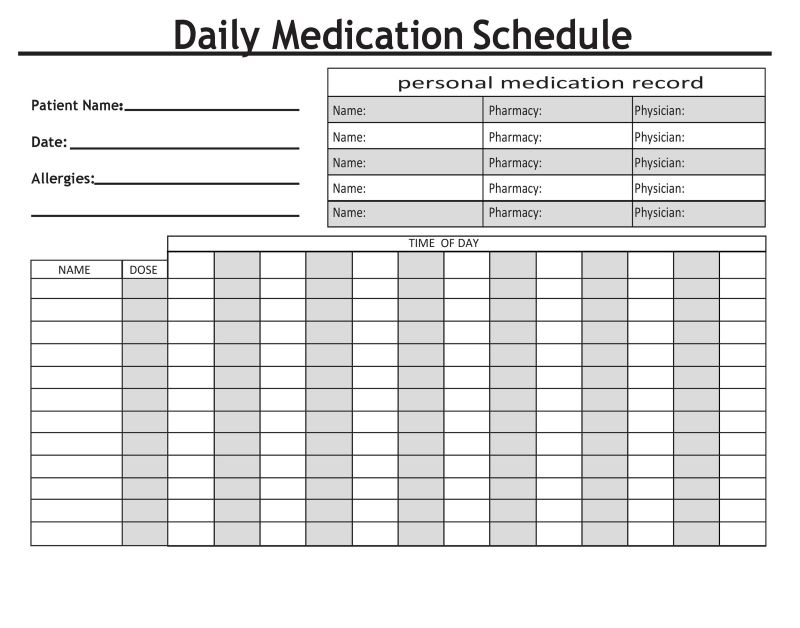
Why Knowing the Intervals Between Medication Doses is Important
The intervals between medication doses play a significant role in determining the effectiveness and safety of the treatment. Different medications have varying half-lives, which is the time it takes for half of the drug to be metabolized and eliminated from the body. Understanding these intervals is crucial because it influences the concentration of the medication in the bloodstream.
Taking medications at the correct intervals ensures that the drug levels remain stable in the body, optimizing its therapeutic effects. Deviating from the prescribed dosing schedule can lead to suboptimal treatment outcomes, reduced efficacy, or even adverse effects. Therefore, knowing the intervals between medication doses is essential for achieving the desired treatment goals.
How to Create a Medication Schedule
1. Gather Information: Start by compiling a list of all the medications you are taking, including the name of the drug, dosage, and frequency.
2. Use a Template: There are various medication schedule templates available online that you can use to organize your medications. Choose one that suits your needs.
3. Fill in the Details: Input the information for each medication, including the time of day it should be taken and any specific instructions from your healthcare provider.
4. Print and Display: Once you have created your medication schedule, print it out and place it in a visible location where you can easily refer to it.
5. Update Regularly: Make sure to update your medication schedule whenever there are changes to your prescriptions or dosing instructions.
Examples of Medication Schedules
Here are some examples of how a medication schedule can be structured:
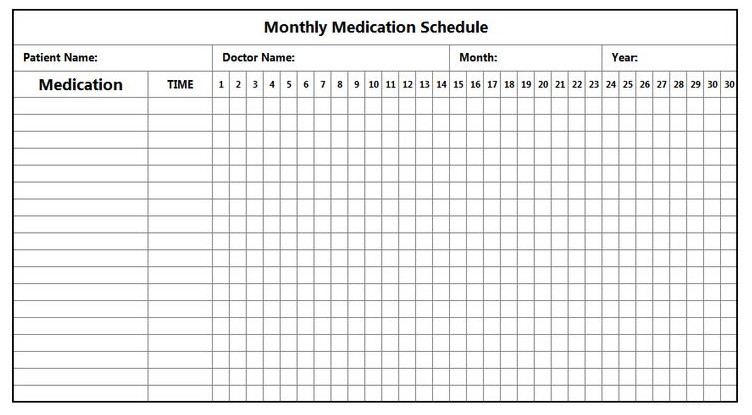
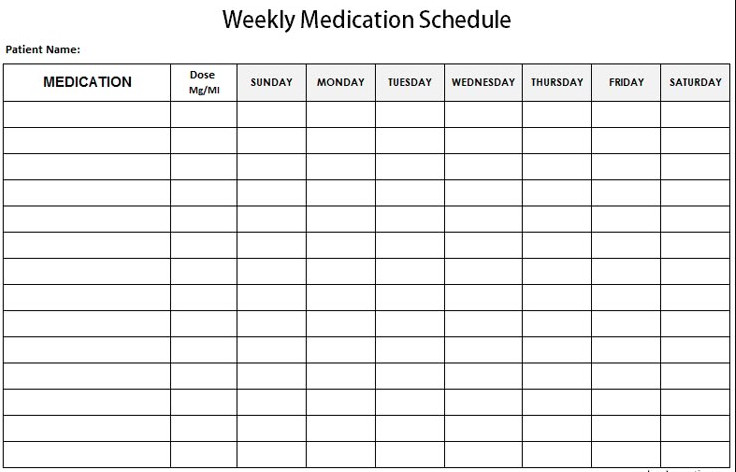
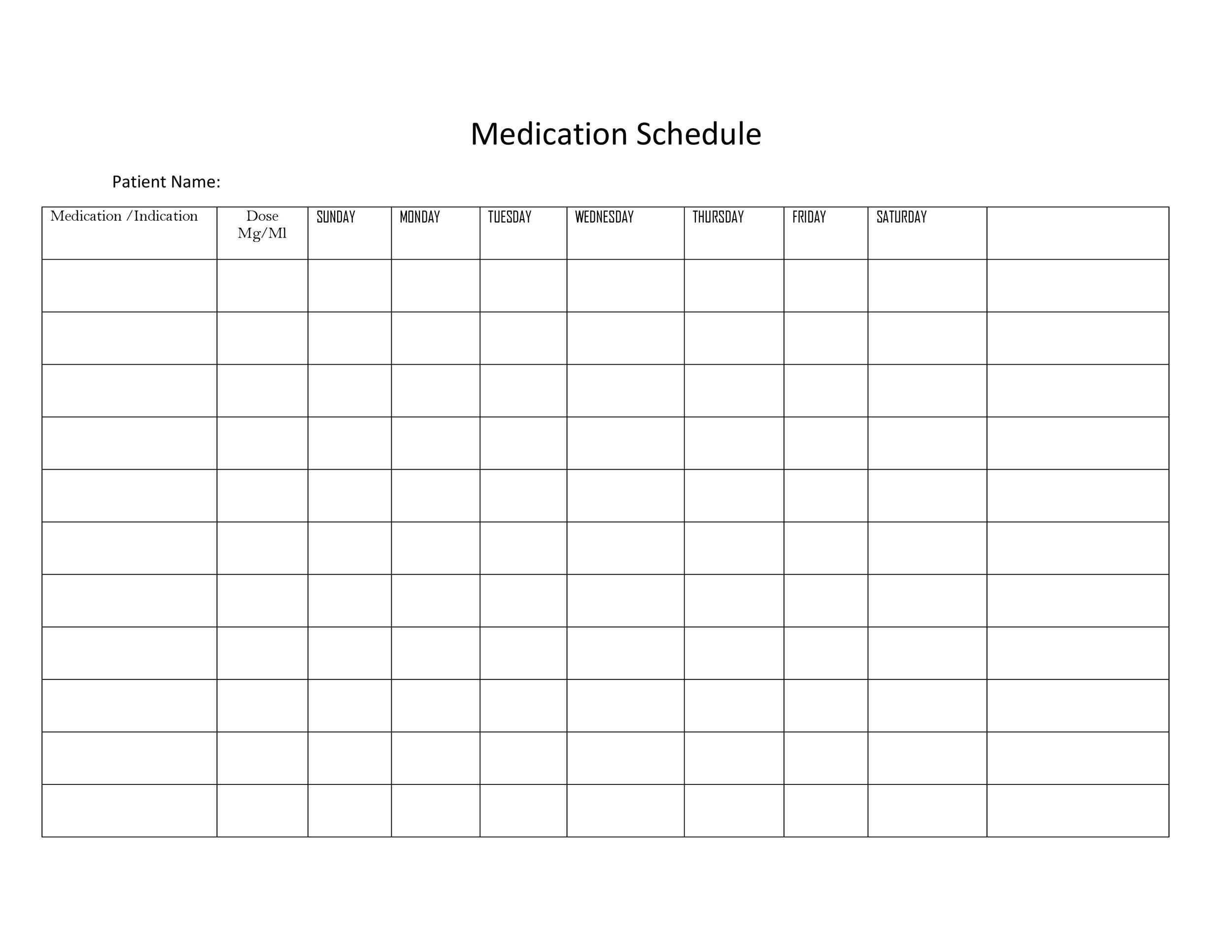
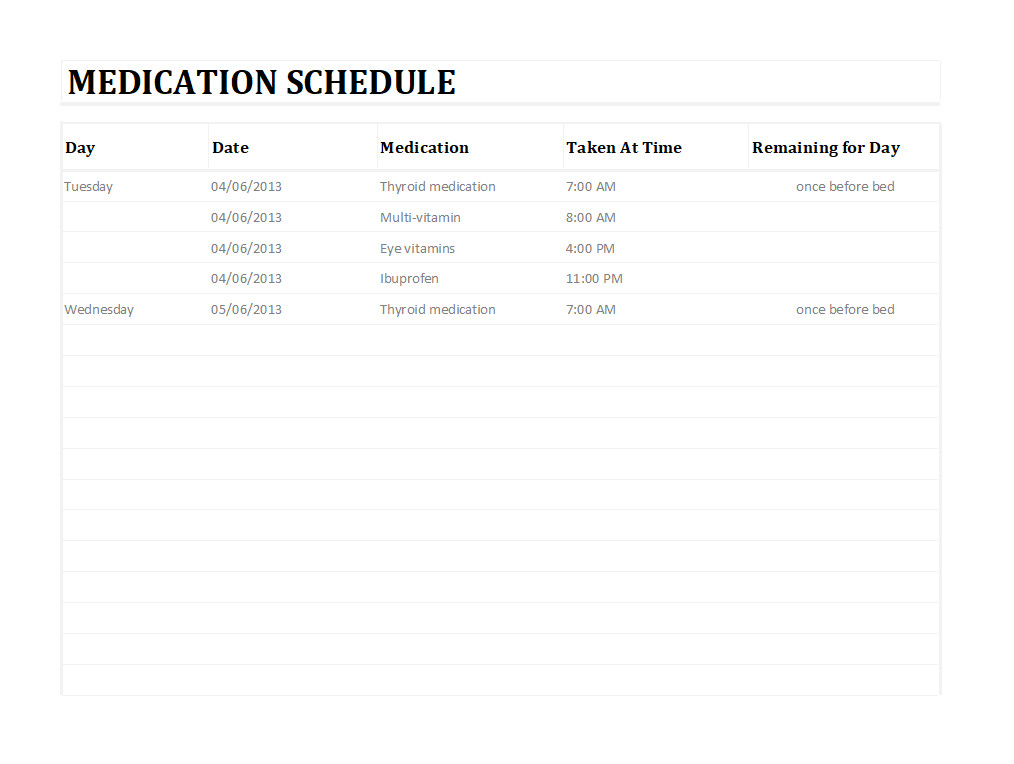
Tips for Successful Medication Management
1. Set Reminders: Use alarm clocks, phone apps, or pill organizers to remind you to take your medications at the scheduled times.
2. Keep a Medication Journal: Track your medication intake, any side effects, and how you feel after taking each dose to share with your healthcare provider.
3. Communicate with Your Healthcare Team: Inform your doctor or pharmacist about any difficulties you are experiencing with your medication schedule so they can help you find a solution.
4. Review Regularly: Periodically review your medication schedule with your healthcare provider to ensure it is still appropriate for your needs.
5. Stay Organized: Keep all your medications in one designated area and store them properly to maintain their effectiveness.
6. Ask Questions: If you are unsure about anything related to your medications, don’t hesitate to ask your healthcare provider for clarification.
7. Seek Support: If managing your medications becomes overwhelming, seek assistance from a caregiver, family member, or healthcare professional.
In Conclusion
A medication schedule is a valuable tool for individuals who need to manage multiple medications. Knowing the intervals between medication doses is crucial for ensuring the effectiveness and safety of the treatment. By creating a personalized medication schedule and following it diligently, you can optimize your medication management and improve your overall health outcomes. Remember to consult your healthcare provider if you have any concerns or questions about your medication regimen.
Medication Schedule Template – Download